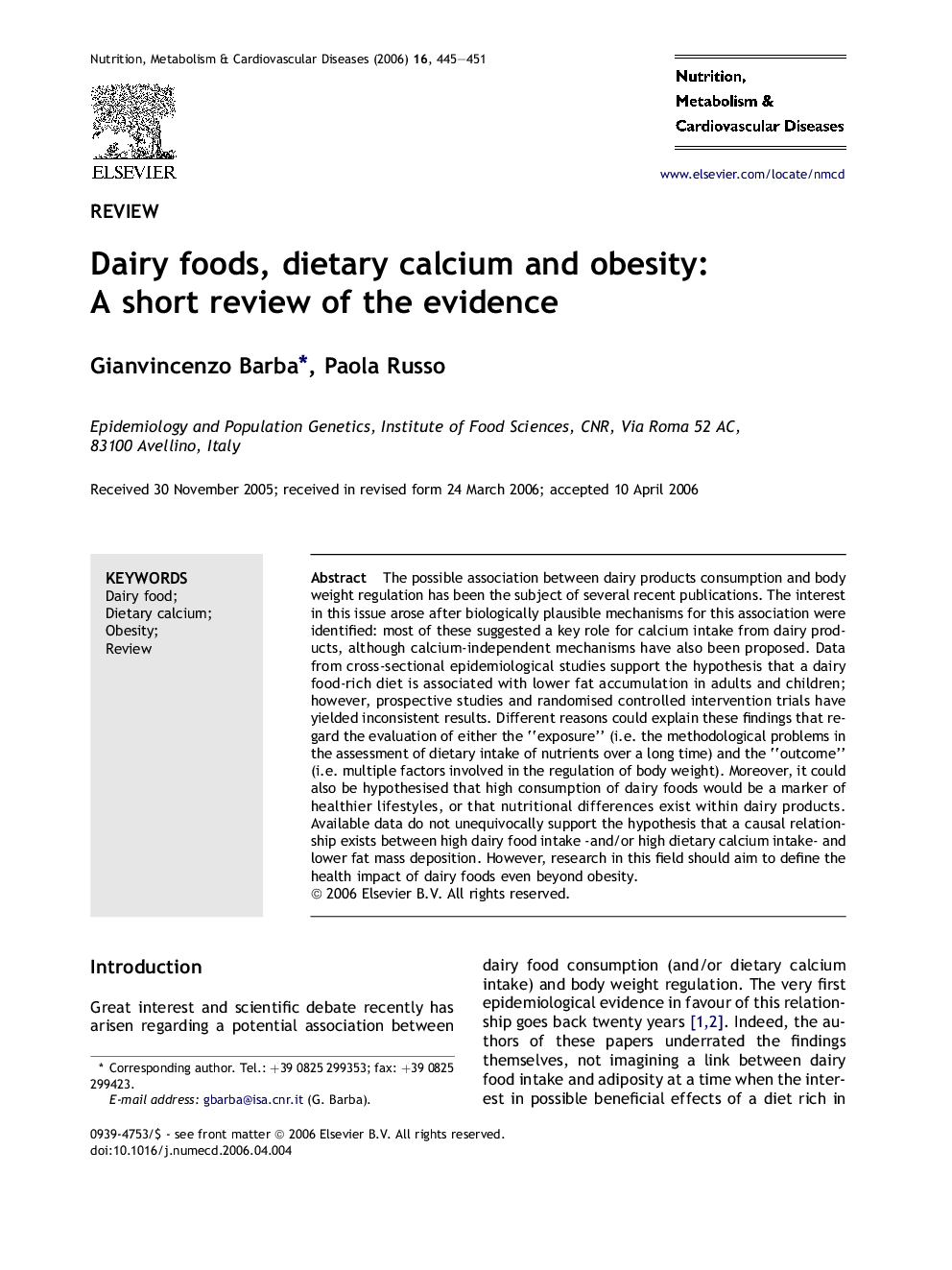| Article ID | Journal | Published Year | Pages | File Type |
|---|---|---|---|---|
| 3003462 | Nutrition, Metabolism and Cardiovascular Diseases | 2006 | 7 Pages |
The possible association between dairy products consumption and body weight regulation has been the subject of several recent publications. The interest in this issue arose after biologically plausible mechanisms for this association were identified: most of these suggested a key role for calcium intake from dairy products, although calcium-independent mechanisms have also been proposed. Data from cross-sectional epidemiological studies support the hypothesis that a dairy food-rich diet is associated with lower fat accumulation in adults and children; however, prospective studies and randomised controlled intervention trials have yielded inconsistent results. Different reasons could explain these findings that regard the evaluation of either the “exposure” (i.e. the methodological problems in the assessment of dietary intake of nutrients over a long time) and the “outcome” (i.e. multiple factors involved in the regulation of body weight). Moreover, it could also be hypothesised that high consumption of dairy foods would be a marker of healthier lifestyles, or that nutritional differences exist within dairy products. Available data do not unequivocally support the hypothesis that a causal relationship exists between high dairy food intake -and/or high dietary calcium intake- and lower fat mass deposition. However, research in this field should aim to define the health impact of dairy foods even beyond obesity.
